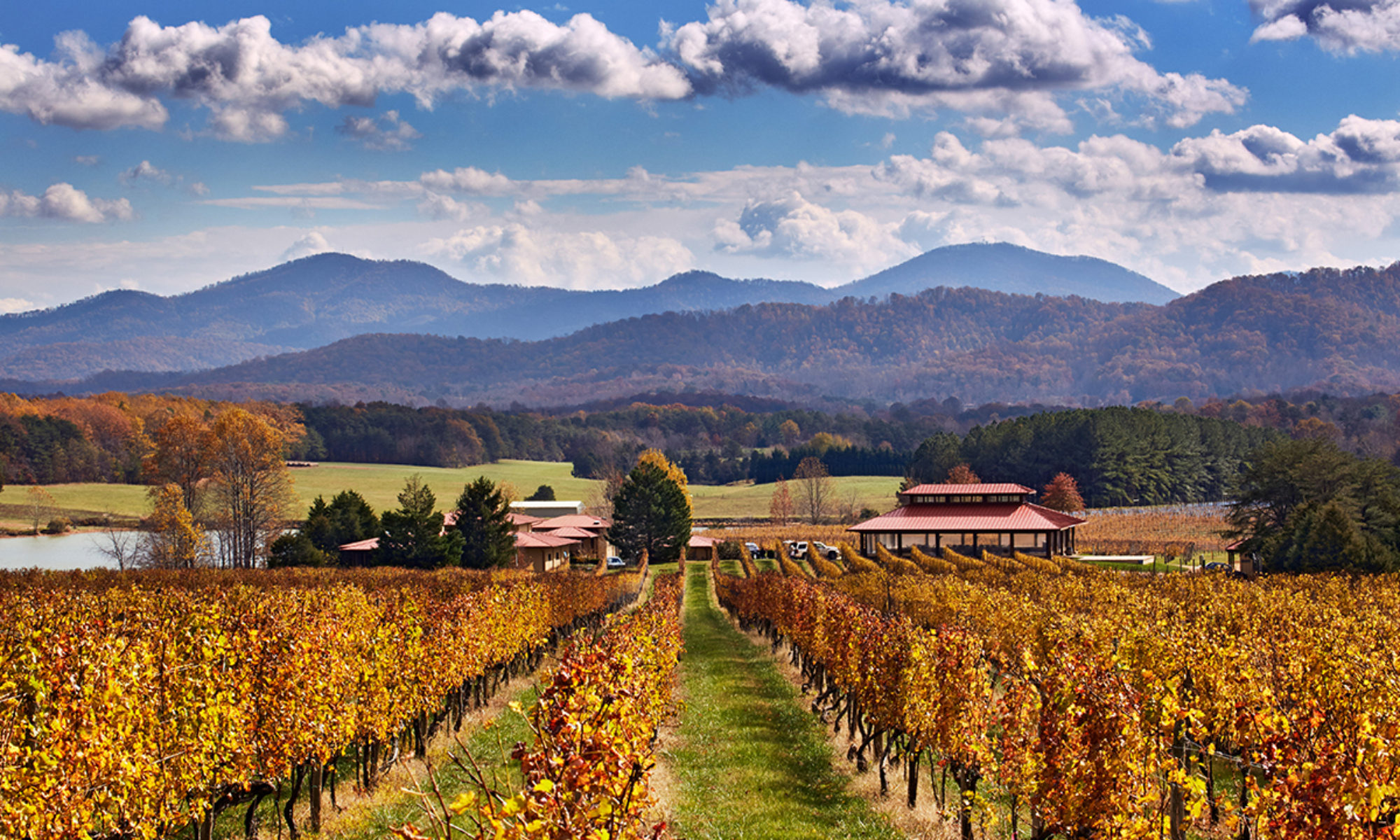Located in Clarksville, Mecklenburg County, south of the Roanoke River and close to the North Carolina border. The winery opened in 2011, owned as the name tells you by three sisters, Beth Graham, Susan Coates and Kay Candelora, with all winemaking operations managed by the family.
Wine. Tier III. The winery is small, with wines made from a hand-press; wines are a fruity, rather than European style. “Voluptuous Maid” is a wine made from Scuppernong grapes; Scuppernong are a type of Muscadine, a wild grape growing throughout southern Virginia (Thomas Jefferson was a fan of Scuppernong wine). “Sweet Nannie” is made from Muscadine. Bodacious Blackberry doesn’t hide any secrets. Wines are also available in local restaurants.
Setting. Nice-looking small vineyard. Open Saturdays and by appointments. As their sign says, they reserve to right to close on good fishing days or for hangovers, and “we do not recommend the establishment if you are in a hurry or are accident prone.” If they’re open, tastings are free.
Stories. Keeping small farms alive – Wine saves the Day. Small family farms throughout the United States faced difficult times in the latter half of the 20th century, and Virginia farms were no exception. Economies of scale and increased mechanization of agricultural production, expanded trade with lower-cost countries, and larger-scale retail outlets all helped widen availability and lower the price of agricultural produce for consumers. But these same developments made it increasingly hard for family farms to compete. In Virginia, the shift away from tobacco use was layered on top of other problems. Farm bankruptcies and closures became all-too common from the 1970s through the 1990s, and led to shrinking farming communities across the country. Some small farms found solutions, however, and Three Sisters was one. The farm was started in 1911 by Vance and Irene Powell, parents of the three sisters, mostly growing tobacco. When their parents passed away, sisters Beth Graham, Susan Coates and Kay Candelora decided to continue the legacy of their parents by keeping the family farm in the family. Yet to do so they needed to find a way to pay for the upkeep and taxes on the farm. Beth’s husband Ed Graham suggested that the best way would be to “make alcohol.” As it turned out, the idea and the timing were good, as Virginians were developing a taste for wine. Ed planted the vineyards with Muscadine, a grape he was familiar with. In 2011, a century after the farm was launched, the winery was opened. He planted enough Muscadine grapevines and blackberries to keep the farm afloat. Today small farms are enjoying a renaissance in Virginia, fueled in no small part by the Farm-to-Table movement. And by wine.
